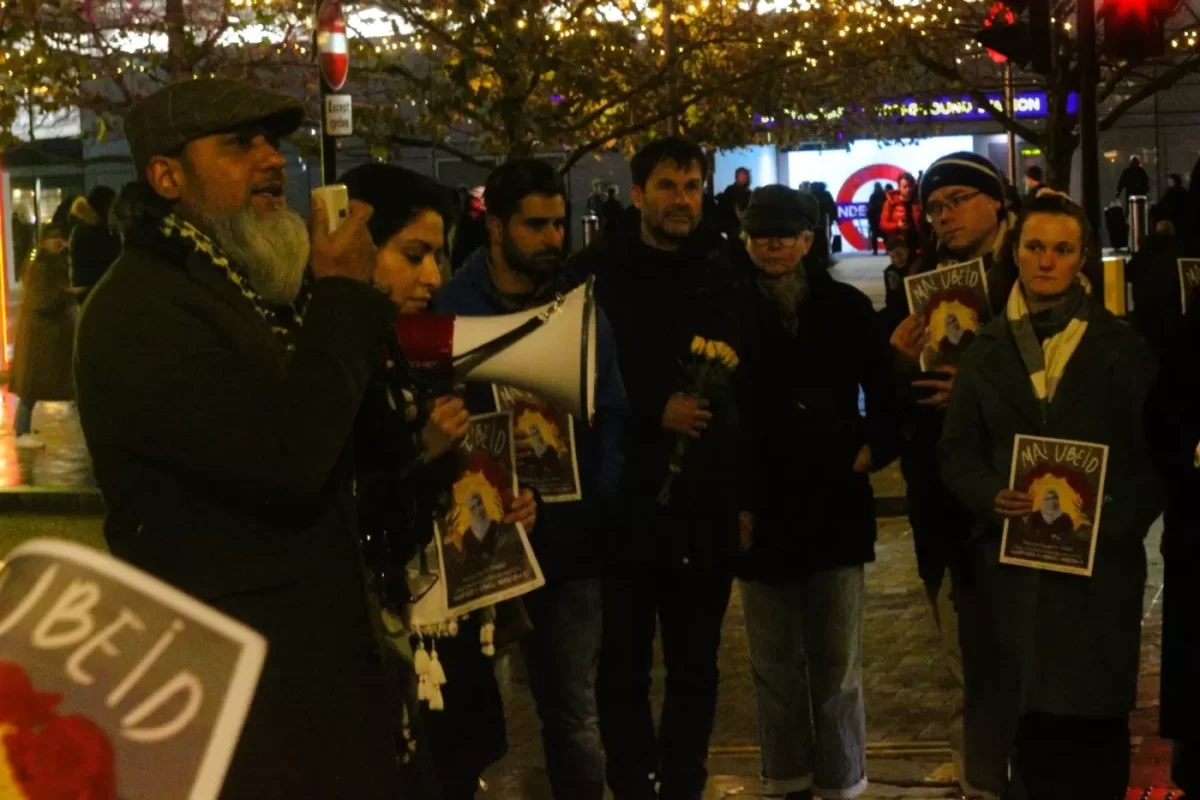Google Employees Protest Tech Support for Israeli Military Actions in Wake of Colleague’s Tragic Loss

Watan-Google employees protested the company’s involvement in providing technology to Israel during a demonstration in London on Wednesday mourning their Palestinian colleague who was killed in an Israeli airstrike in Gaza.
The protest honored software engineer May Obeid, who graduated from Google-funded “Gaza Sky Geeks” coding bootcamp in 2020 and was part of Google’s startup acceleration program. Obeid, along with her entire family, was killed in an Israeli airstrike on Gaza on October 31.
The protest was organized by Google employees and the No Tech For Apartheid campaign outside the company’s offices near King’s Cross station, following similar events in Seattle and New York in the United States.
Joseph, who identified himself as an executive at Google in London, stated, “I think many of us have gathered to commemorate Obeid’s memory, raise awareness, and show Google and Amazon’s leadership that many of us care about this issue, stand in solidarity with Palestinians, and will not allow our technology to be used against innocent civilians.”
None of the individuals interviewed by “Middle East Eye” wished to use their names or official job titles, fearing retaliation.
Google employees have long criticized the company’s business ties with Israel, particularly targeting the Nimbus project, a $1.2 billion deal between Google and Amazon to provide cloud and computing services to Israel and its military.
While Google has stated in the past that the project only provides “commercial” services to several Israeli government ministries, the Ministry of Finance announced during the deal that Amazon and Google would also provide services to the “Defense Establishment.”
Anger over the use of Google technology in the war on Gaza
Google employees expressed their anger during a protest, stating that they are upset that the technology developed by their company could be complicit in the Israeli war. They emphasized the need for more oversight on new technology.
Alma, a trust and safety specialist, said, “I don’t think it’s 100% acceptable to use the products we build for this purpose, and I think we’re trying to express our perspective within [Google], and sometimes we feel that we are not being heard.”
She added, “We do not agree with the use of Google products to kill civilians or non-civilians, anyone, any human—we do not consent to the use of artificial intelligence in war to make life or death decisions.”
Complaints from employees within Google have been ongoing for a long time before the October 7th attack, alleging that voices supporting Palestinians were not tolerated—or even faced mistreatment—within the company.
Last month, an open letter organized by the No Tech For Apartheid organization warned of the “hatred, abuse, and retaliation” faced by Palestinian, Arab, and Muslim employees at Google. It accused managers of engaging in “interrogation, reporting, and attempted dismissal.”
Protests also occurred last year after another former Google employee, Ariel Koren, accused the company of punishing her by forcing her to relocate to Brazil after she led employee-led actions against the Nimbus project.
Joseph stated that there has been a lot of “pressure” on those with pro-Palestinian views. He added, “You have to be extremely cautious about what you say if you’re misclassified as anti-Semitic, so you have to walk on eggshells, and at the same time, I think many of us are tired of the silence.”






